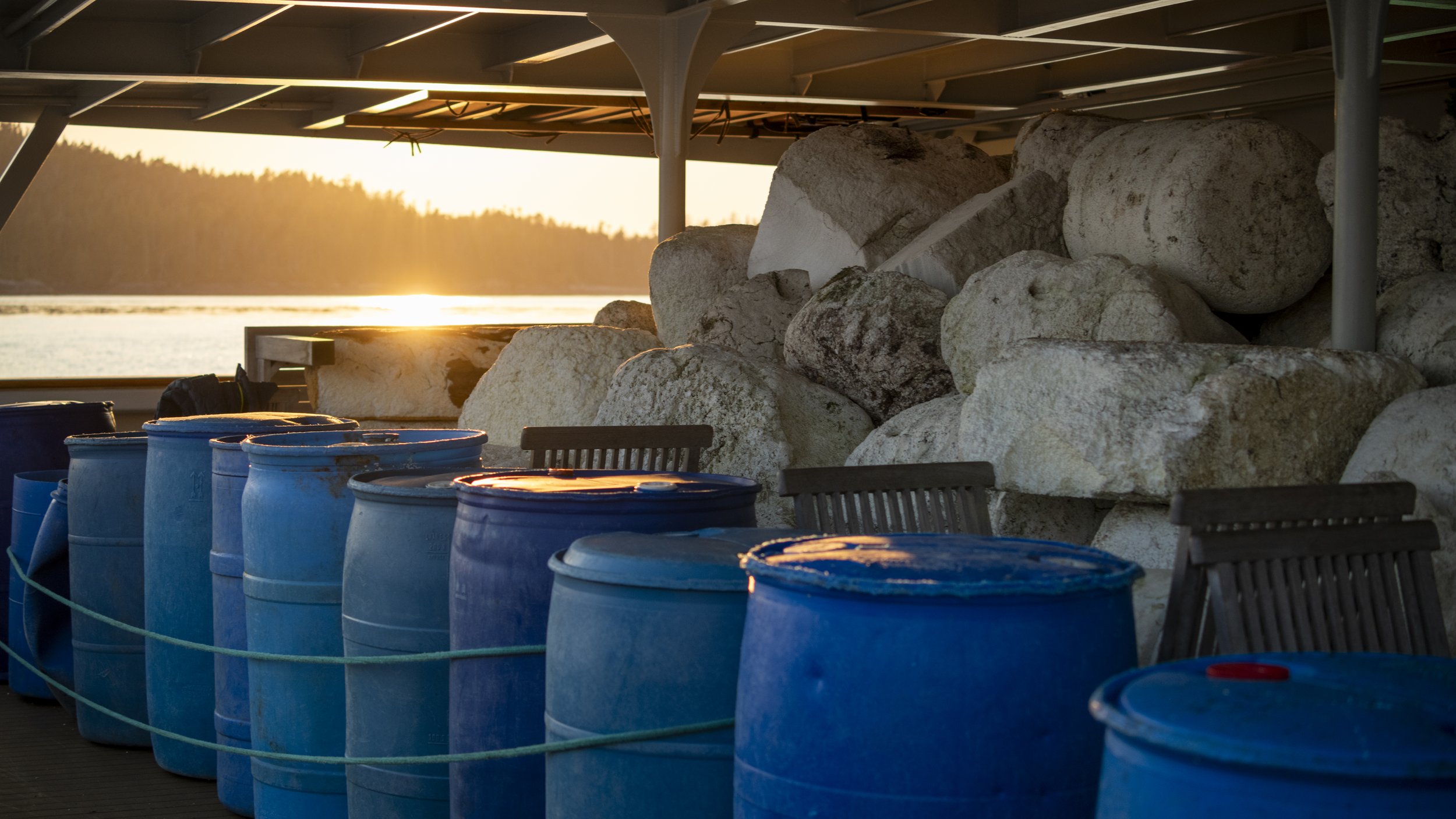VIDEO
DATA
WORDS
Small Ship Tour Operators set a new course during tourism season to clean up British Columbia’s coast - by Maple Leaf Adventures
Victoria, BC – For the first time since the Marine Debris Removal Initiative (MDRI) began when the pandemic halted tourism, Small Ship Tourism Operators (SSTOA) members Maple Leaf Adventures and Bluewater Adventures have returned to their mission to clean up marine debris from British Columbia’s remote coastline.
Working with local Indigenous nations, they have just completed the clean up of 32.5 tonnes of debris comprising of fishing gear, nets, rope, polystyrene floats, plastic bottles, and more—exceeding their target of 30 tonnes. This marine debris, if not removed, poses significant threats to BC’s ecosystems, breaking down into microplastics or entangling wildlife such as humpback whales.
This clean up adds to the over 327 tonnes they cleaned up in the previous two expeditions in 2020 & 2021. This year’s effort was uniquely redesigned to fit within the middle of their tourism season. Thanks to the skill and passion of 48 crew members aboard three expedition vessels—Maple Leaf, Cascadia, and Island Roamer—the team achieved remarkable cost and carbon footprint efficiencies compared to previous initiatives. Funded by the BC government’s Clean Coast, Clean Waters (CCCW) program, the cleanup area once again targeted the Great Bear Rainforest and Great Bear Sea region, encompassing marine and terrestrial protected areas, critical habitats for whales, seabirds, and sea otters, and dozens of islands. This region has earned global appeal for its nature-based tourism offerings.
The region’s remoteness—only accessible by watercraft—added complexity, requiring advanced maritime knowledge, skills, and wilderness expertise; along with movable, remote infrastructure for housing, storage, transport, communications, and supplies.
Leadership from the Heiltsuk, Kitasoo Xai’xais, and Gitga’at Nations collaborated with the expedition to remove debris from important cultural sites in coastal regions surrounding Bella Bella, Klemtu and Hartley Bay. Heiltsuk Integrated Resource Management Department (HIRMD) in Bella Bella, home of the Heiltsuk Nation, sent out 19 Heiltsuk youth and youth leaders. Also, three boats and eight Hartley Bay community members worked alongside Cascadia and Island roamer crews at the Moore Island group.
Bridgemans Services Group provided essential support in offloading and processing the marine debris after collection. From there, 80% of the marine debris was transported to Ocean Legacy Foundation and KUTE (Kitimat Understanding The Environment) to be recycled.
Both Maple Leaf Adventures and Bluewater Adventures, members of the Small Ship Tour Operators Association (SSTOA) and Wilderness Tourism Association (WTA), provide small-scale expedition cruises that give guests weeklong experiences among the wildlife, cultural history and landscapes of the coast. They operate low-impact, high-value experiences in the Vancouver Island, Haida Gwaii, Alaska, and Great Bear Rainforest regions that benefit both visitors and local communities.
As world-recognised practitioners of sustainable tourism, both companies regularly incorporate coastal care into their expeditions. Since returning to operating trips with guests, the companies provided educational talks from leaders of the initiative which inspired guests to make change in their own way, regularly taking part in voluntary beach clean ups during their time aboard.
By integrating marine debris removal into a peak tourism season, the companies aim to show how coastal protection and environmental stewardship can become just another part of doing business in British Columbia.
Join the Movement: The SSTOA invites media, industry partners, and the public to follow updates from the MDRI 2024: #BCCoastalCleanup, and #CleanCoastsCleanWaters with mentions of @mapleleafadvent, @bluewateradventures, and @wildernesstourismassociation.


















